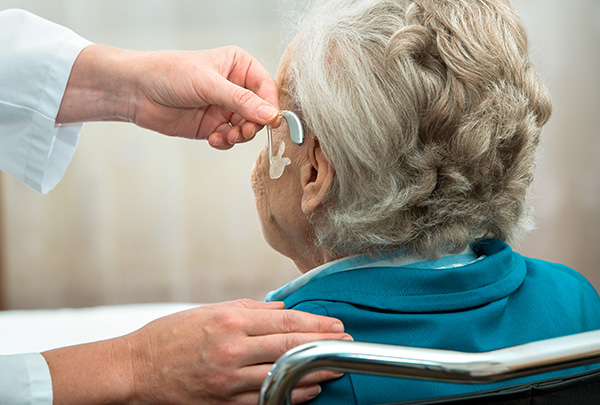Specialized Audiologists: What Areas Do They Focus On?
Entering the world of hearing health can seem complex if you’ve never

By: admin | July 19, 2021
A significant number of the population experiences hearing loss throughout their lives. In the United States alone, around two million adults use a hearing aid due to some form of hearing loss. However, with the growing figure surrounding those who experience hearing loss changing as the population gets older with each passing decade, it's sometimes asked whether hearing aids are considered a disability. It seems the most common reasons being how extreme is your hearing impairment and where you live in the United States.
According to the National Institute on Deafness and Other Communication Disorders (NIDCD), One in eight adults in the United States aged 18 and over experience some trouble with hearing loss, with the stats growing to around 30% of individuals aged 70. It’s important to seek an audiologist who can recommend treatment or the right pair of hearing aids to help with their hearing.
Such a suggestion depends on how extreme and how it affects you and what is stated by your audiologist. There are several factors that could determine the severity of your hearing loss. Typically, there are three types of hearing loss that many of us will experience throughout our lifetimes:
If you undergo sensorineural hearing loss, you're experiencing a problem that has affected the inner ear or how the auditory nerve delivers signals to the brain. This hearing loss results from several causes, such as aging or prolonged exposure to loud noises louder than 85dB. Noises above 85dB include headphones on maximum volume, loud explosions such as fireworks and some vehicles such as motorcycles and ambulance sirens. Other factors that could cause sensorineural hearing loss include drug side effects and tumors that affect the auditory nerve.
You experience conductive hearing loss when sound isn't reaching into your ear either due to an obstruction or trauma. Conductive hearing loss differs depending on the obstruction or trauma; for example, causes for this type of hearing loss could be fluid, foreign objects, allergies, ruptured eardrums and impacted earwax. Depending on the case, conductive hearing loss can be permanent or temporary and normally can be treated.
Finally, we have mixed hearing loss which could be a mix of both sensorineural and conductive hearing loss. Mix hearing loss could happen for a variety of reasons, from head trauma to ear infections or genetic disorders. Genetic disorders could also be a reason behind hearing loss that occurs from birth, with around 90% of hearing-impaired children born to hearing parents.
Infections and viruses are also more common in children, with around five in six children experiencing ear infections before their third birthday. In addition, other viruses such as German measles and Meningitis are also known to cause hearing loss among children, posing further risk if not treated. For example, according to a JAMA study, around 400 children diagnosed with Meningitis resulted in hearing loss, and in some cases, treatment given for infection could result in compromised hearing health.
Due to the degenerative nature of hearing loss, it would depend on the level of hearing loss and the regulatory body such as Social Security Administration (SSA). In some cases, proof of severity may be crucial. However, with changing technology and regulations, accessibility has become more important, and with this, the changing of the definition of what may be seen as a disability.
According to the Americans with Disabilities Act (ADA) amended guidelines, even if your hearing impairment is shown through a hearing aid, you are considered to have a legal disability and are entitled to the support and protections that come with it. There, however, are still many that argue that wearing a hearing aid alone is not considered a disability, even though it helps you with your day-to-day life.
However, in some parts of the United States, the severity of the hearing loss will need to be determined by hearing tests if you wish to apply for any social security or certification. In some cases, the results of your hearing tests may be lower than what the ADA and social security services would class as a disability.
Nevertheless, it is imperative that you seek the help of an audiologist if you are worried about your hearing health. Hearing loss is a disability that does have an impact on your health over time. So, if you're experiencing hearing loss, get in touch with an expert audiologist. You can learn more about EarTech Audiology or call us today at (866) 464-1008.

Entering the world of hearing health can seem complex if you’ve never
By: admin | January 31, 2024

A pivotal figure in the workplace, a hearing specialist plays a crucial
By: admin | December 28, 2023

Hearing tests are essential for determining whether you have hearing loss
By: admin | November 25, 2023
